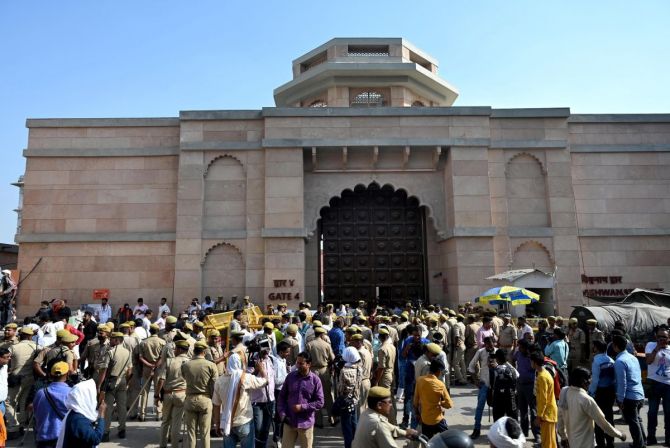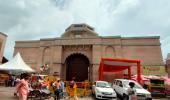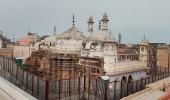A Varanasi court on Saturday fixed January 24 for deciding whether to make public the sealed Archeological Survey of India (ASI) report on the Gyanvapi mosque complex survey and provide copies to the parties.

The order to this effect was given by District Judge A K Vishvesh, Madan Mohan Yadav, counsel for the Hindu side, said.
The counsel of the Hindu and Muslim sides and the Archeological Survey of India (ASI) were present in the court.
Following a July 21 order of the district court, the ASI carried out the scientific survey of the Gyanvapi premises, located next to the Kashi Vishwanath temple here, to determine whether the mosque was constructed over a pre-existing structure of a Hindu temple.
The court on Saturday said it will decide the issue after the hearing in the matter before the Civil Judge Senior Division Fast Track Court takes place. The Fast Track Court is scheduled to take up the matter on January 19.
The ASI had on Wednesday urged the court not to make its Gyanvapi complex survey report public for at least four more weeks, citing the December 19 judgment of the Allahabad high court.
ASI counsel Amit Shrivastava had told the district court that the high court had said in its order that, if necessary, the Civil Judge Senior Division Fast Track Court can order a survey of the Gyanvapi complex once again.
Therefore, if the survey report comes into the public domain now, a situation of contradiction may arise. Therefore, four weeks should be given to open the survey report and make it available to the parties, the counsel had said.
The Allahabad high court had on December 19 dismissed several pleas from the Muslim side challenging the maintainability of a suit seeking restoration of a temple where the Gyanvapi mosque now stands in Varanasi.
"The trial in this case of vital national importance should be concluded as soon as possible, preferably within six months. If required, the lower court may direct ASI for a further survey," the high court had observed.
The survey was ordered by the court after the petitioners claimed the 17th-century mosque was constructed over a pre-existing temple.
The ASI had submitted its survey report to the district court in a sealed cover on December 18.
During the hearing in the district court on Wednesday, the Hindu side referred to its application to the Supreme Court seeking permission to clean the mosque 'wazu khana' (used by people for ritual ablutions before offering namaz) as several fish have died there.
The Muslim side objected to this, saying the 'wazu khana' is their property and they should be given the responsibility to clean it.
The Hindu side told the district court that the 'wazu khana' was sealed on the orders of the Supreme Court. The Hindu side also said that it should be cleaned either by them or the administration.
The matter is also likely to be taken up by the district judge court on January 24, Yadav said.










 © 2025
© 2025